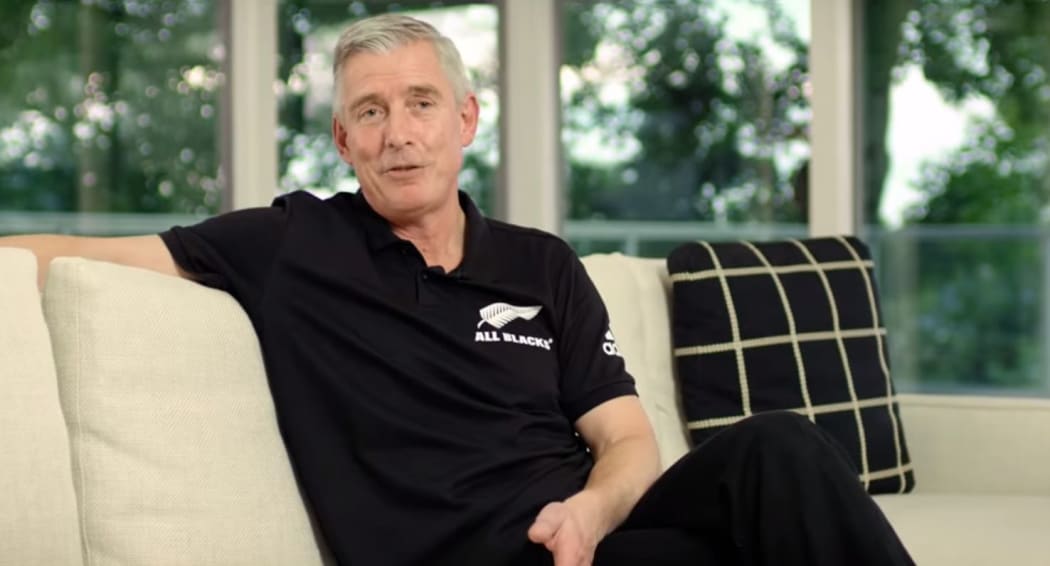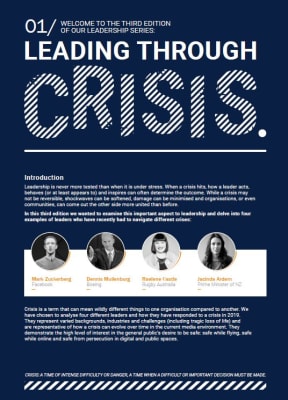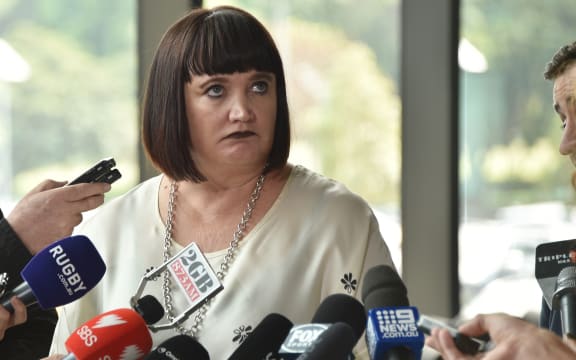A media monitoring company reckons leaders who are ‘out there’ more in the media reap rewards when the news turns bad for them. But would it be better for the rest of us if they stuck to their knitting instead of trying to manage the media?

Meet the new boss. Air New Zealand introduces Greg Foran to customers via email and social media. Photo: screenshot / YouTube
Even before coach Steve Hansen and captain Kieran Read led the All Blacks out for their last game on Friday, the media were churning out speculative stories about who will replace them.
One of those who'll decide, New Zealand Rugby’s chief executive Steve Tew, was grilled at length about that by reporters. He is also stepping down soon.
Whoever ends up in the trio of top jobs at the sharp end of our biggest sport will need to know how to handle the media. Indeed, some experts reckon that is now as essential to success for modern business leaders as handling the actual business they lead.
One who seems comfortable with that is the man in charge of rugby’s main broadcasters here: Sky TV boss Martin Stewart.
Last month he announced Sky’s big rights deal for top grade rugby not just in the usual way via the media - but also direct to the public on YouTube.
This ended with a rugby ball being fired at him from stage left - a riposte there to those who had reckoned Sky had "dropped the ball" on TV rights.
When Air New Zealand unveiled its new boss Greg Foran last month, the airline emailed clients and customers with the news and urged them to watch a YouTube video featuring Greg at home in his All Black shirt to “learn more about him”.
In the sentimental video, Greg Foran talked about important stuff like sustainability - a key PR challenge facing the airline - as well as how much he had missed sausage rolls, chardonnay and cream donuts while working overseas.

Isentia's report on how the media view business and political leaders in action. Photo: supplied
But is it really important for leaders to be 'out there' a lot in the news media and social media like this?
Media monitoring company Isentia looked at media coverage of business and political leaders and concluded New Zealand’s bosses “need to be more visible if the public is going to trust them when the proverbial hits the fan".
Isentia's latest report 'Leading Through Crisis' analysed media coverage of four crises and how they were handled by leaders:
-
Mark Zuckerberg under fire for the spread of hate on Facebook.
-
the response of Boeing’s boss to the crashes of 737 Max planes earlier this year.
-
Rugby Australia’s handling of Israel Folau’s staunch religious stance on homosexuality
-
Jacinda Ardern’s response to the Christchurch mosque attacks.

Ngaire Crawford, Isentia head of insights Photo: supplied
“In the digital age we live more of our lives in a public space, but we also crave personal connection and leaders need to factor this into their behaviour, making themselves visible and building a broader connection with their audience. It’s no good trying to do that when something goes wrong – it’s far too late," says the report.
Isentia's head of insights, Ngaire Crawford, reckons public trust in leaders is enhanced by seeing them more often in the media - but New Zealand’s business leaders were all too often absent.
"We're trying to look at how media define leadership and what contribution the media make to the current idea of leadership. The main thing we found is that corporate leaders are quite absent on social media," she told Mediawatch.
"There has been a tendency not to use CEOs in the media if they're not media-savvy. But in times of crisis and bad news, it will decrease trust in a CEO if you only see them in a difficult situation," she said.
It makes sense that a leader with a positive public profile built up in the media will have a head start when a crisis happens - but is it actually better for us if our leaders are sticking to their knitting instead of trying to manage the media?
Air New Zealand is certain is be the subject of significant stories while Greg Foran is at the helm.
The previous CEO Christopher Luxon had a low profile in the media in his seven years in charge while his predecessor Rob Fyfe became a well-known national figure.
Will social media outings like his 'getting to know me' video help Foran - and the airline - in any forthcoming crisis?
"It's a start. But no one piece of content will achieve that," she said.
Ngaire Crawford says there can be a wariness about CEOs from offshore running big names in business here.
"A lot of that video [of Foran] was about demonstrating that he was from New Zealand and had returned to run this business. It could have been a story about a Walmart boss coming in to take the job," she said.
"Leadership requires a two-way conversation with a broader audience more than ever. If information is one way, conversations will just happen without you. Audiences demand connection more than ever before. Content is more tailored, individual and auteured, and this impacts the expectations we have on our leaders," says Isentia's research.
But being out on the front foot personally on social media doesn’t always work well for business leaders.
After years of manufacturing exclusively from its local base in Levin, outdoor clothing company Swazi took a difficult decision earlier this year to move some work for some garments to Thailand.
Swazi boss Davey Hughes announced it in a personal fireside chat-style video on YouTube.
That prompted the New Zealand Herald to report that "the Kiwi clothing company is moving production offshore". An irritated Davey Hughes went to Facebook to set the record straight. The Herald published a clarification..
Isentia's 'Leading Through Crisis' report criticised Boeing CEO Denis Muillenberg for being absent and too silent after two 737 Max crashes recently. But if he and his company didn't know for sure what caused the crashes, why was it wrong to say little in public and keep a low profile?

Rugby Australia chief executive Raelene Castle in a news conference after Israel Folau's anti-gay comments in April last year. Photo: AFP
"I don't think the expectations leaders place on themselves are the same as the public have," Ngaire Crawford told Mediawatch.
"It's easy to say nothing if you don't know. I don't think that's acceptable in the current media environment," she said.
"Boeing communicated incredibly defensively. They weren't in the discussions about what went wrong. If they had made a proactive decision to ground the planes they would have taken less of a financial hit," she said.
The new Sky TV boss has made it a priority to communicate with the public in social media and to make major corporate announcements personally.
But Martin Stewart has only 840 followers on Twitter. The number of YouTube and Facebook views for the videos he's fronted amount to only a fraction of Sky's customer base.
"This is the right direction when you think of what he walked into. You had a CEO previously who was quite aggressive and when he did comment he didn't understand the tone of his audience or where the industry was going," Ngaire Crawford told Mediawatch
But US-born media executive John Fellet was in charge for more than 20 years during which the shareholders made good money and never sought to replace him. He didn't need to raise his profile and go on social media.
"But he led the business at its height and did not future-proof it," Ngaire Crawford argued.
"Now Sky has to portray that it is completely different and has an attitude that will win over old customers and potential new customers and the New Zealand public in general because it is in a sports rights content debate where people have to have multiple subscriptions to watch just one sport," she said.
"There is a huge task ahead of them to build trust and I think putting the CEO at the head of it is the right way to approach it," she said.
"This is now a core part of being the head of a business. The cultural context around the world has changed. How people choose to follow and support people is completely different," she said.
Businesses worldwide have noted the rise of 'influencers' online.
"The amount of money and trust being put into people creating personal connections with their audience is huge," said Ngaire Crawford.
"That's capitalising on a desire - especially among younger audiences - to be able to know someone and connect and take their word for what it is they recommend," she said.
"It's used to present issues, get political support, get votes just as it's used to get people to buy your t-shirts or your make-up," she said.

